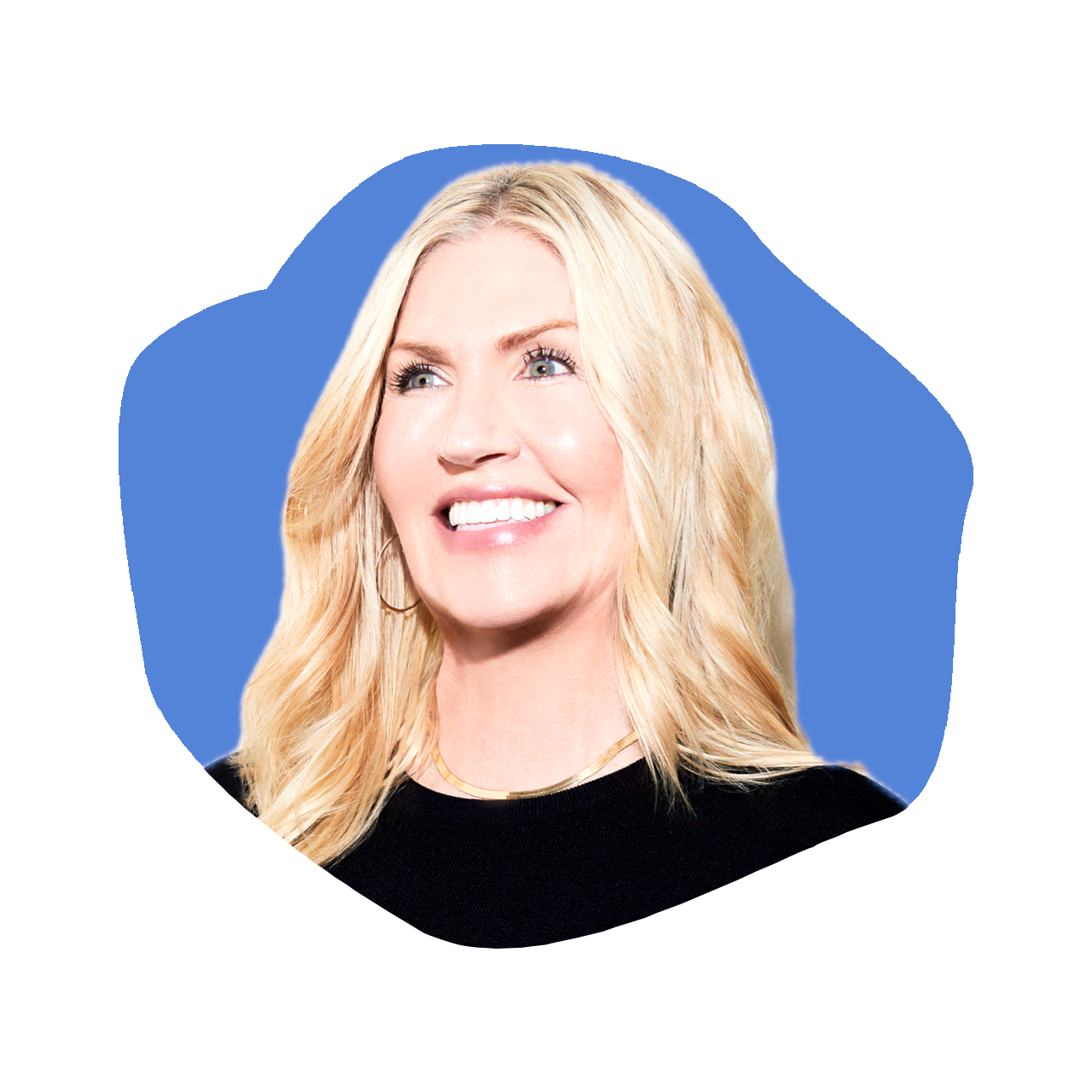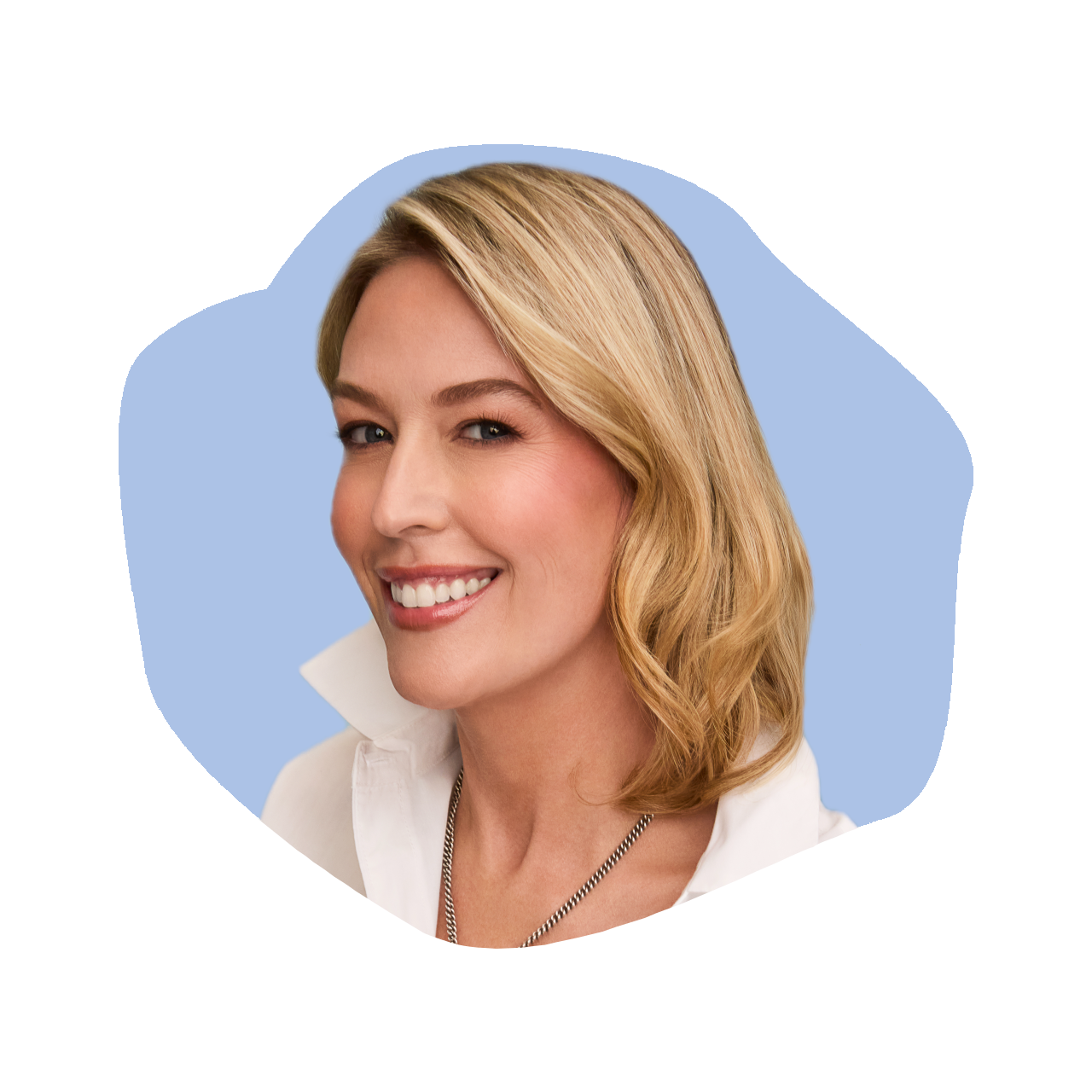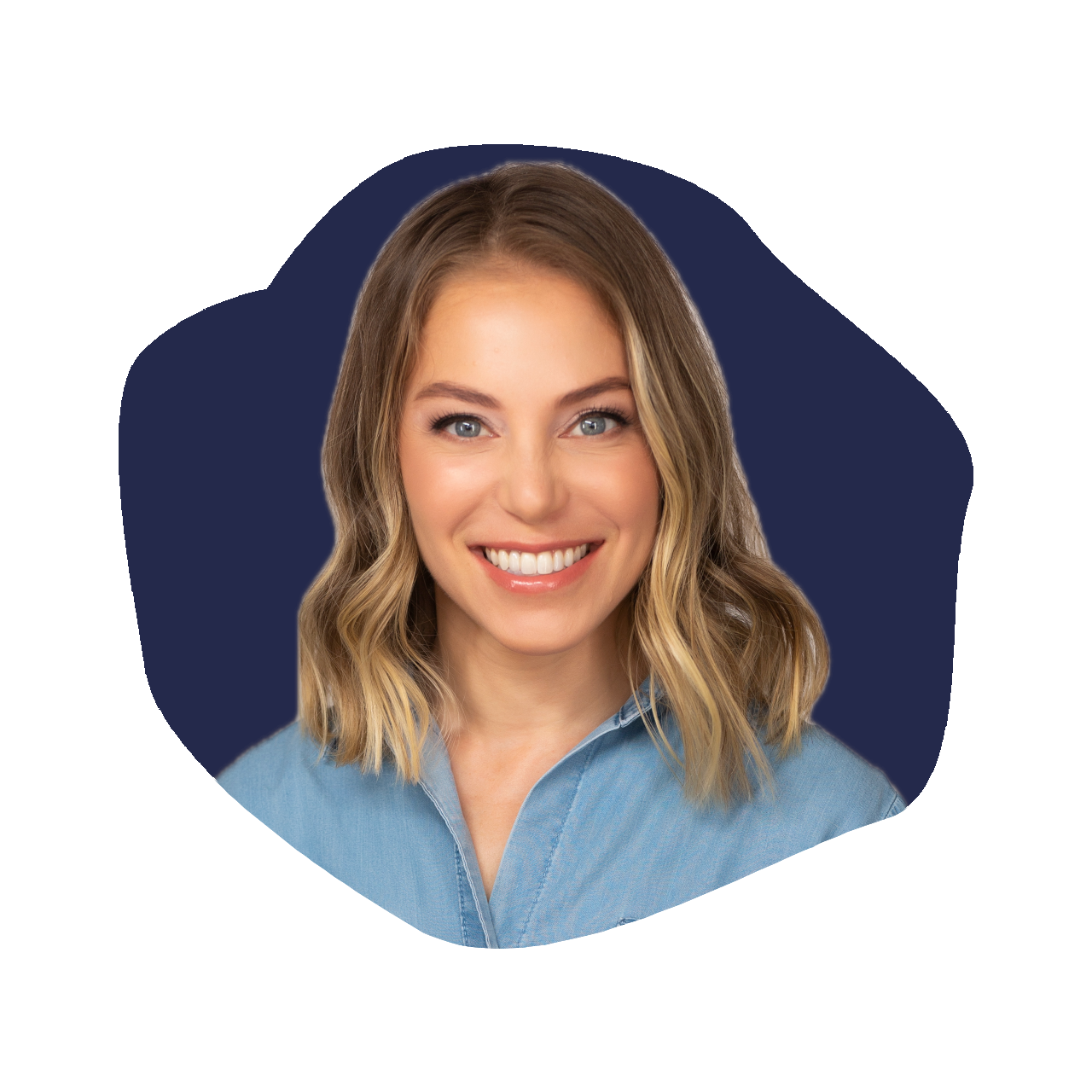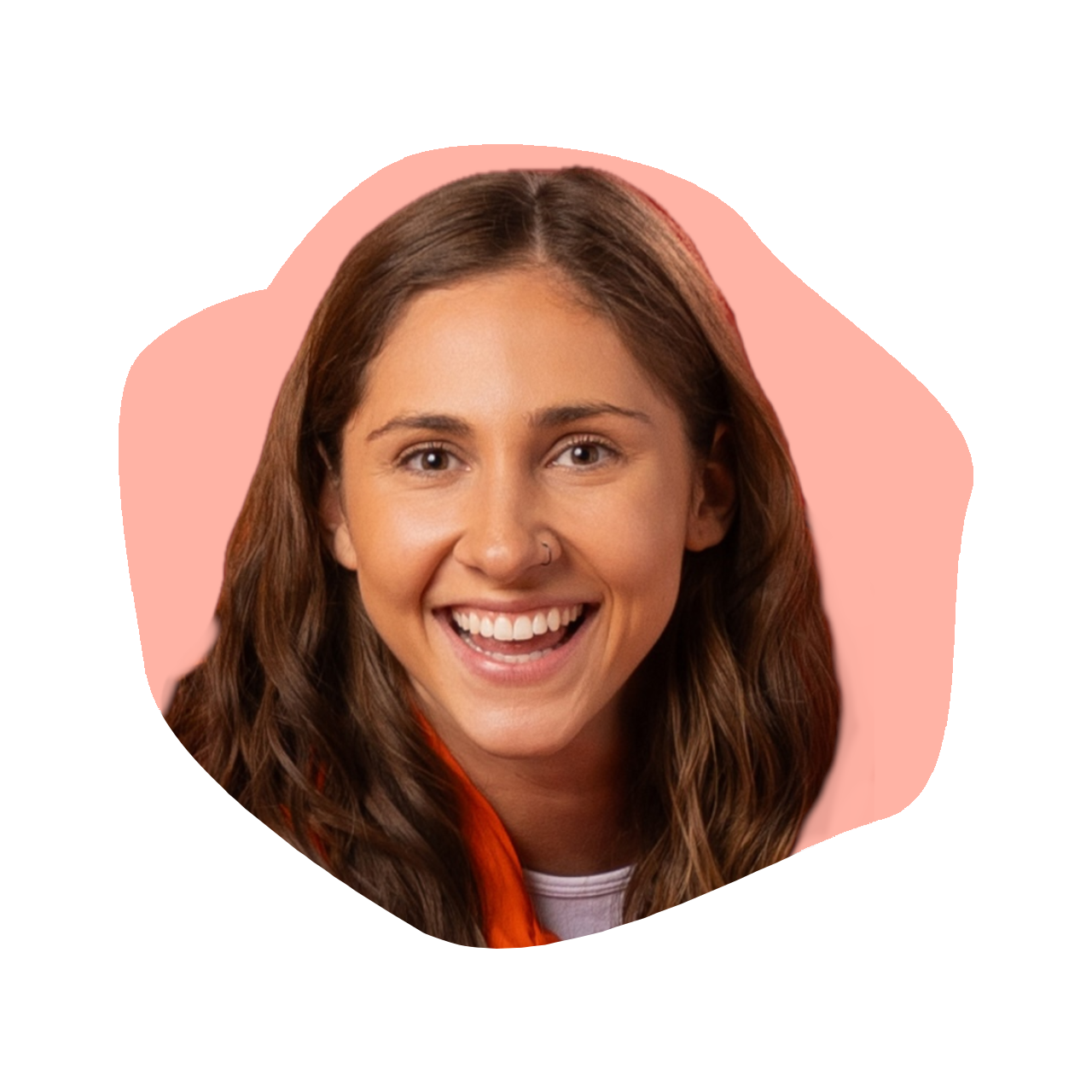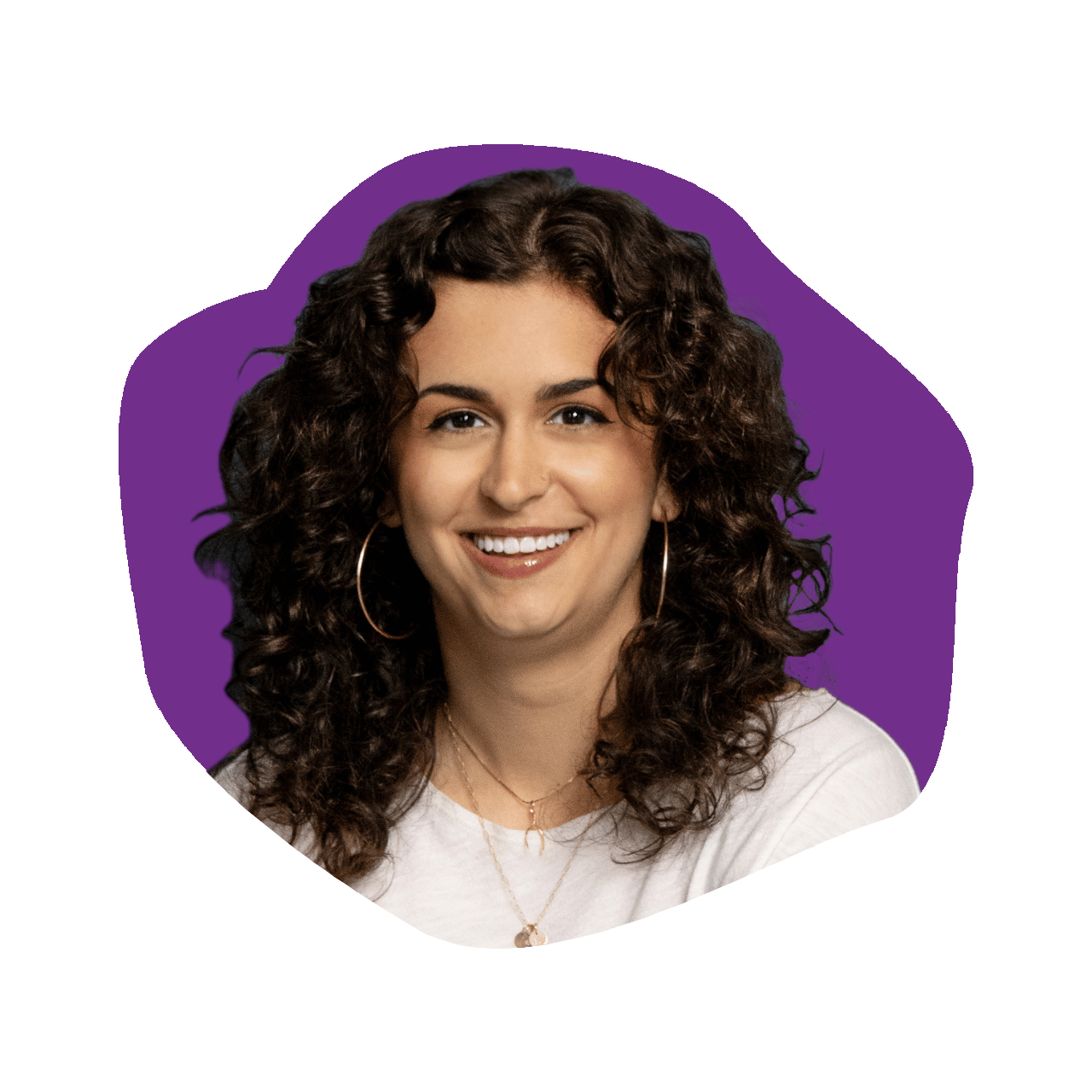Melissa Palmer: Co-Founder & CEO of OSEA
Episode 587
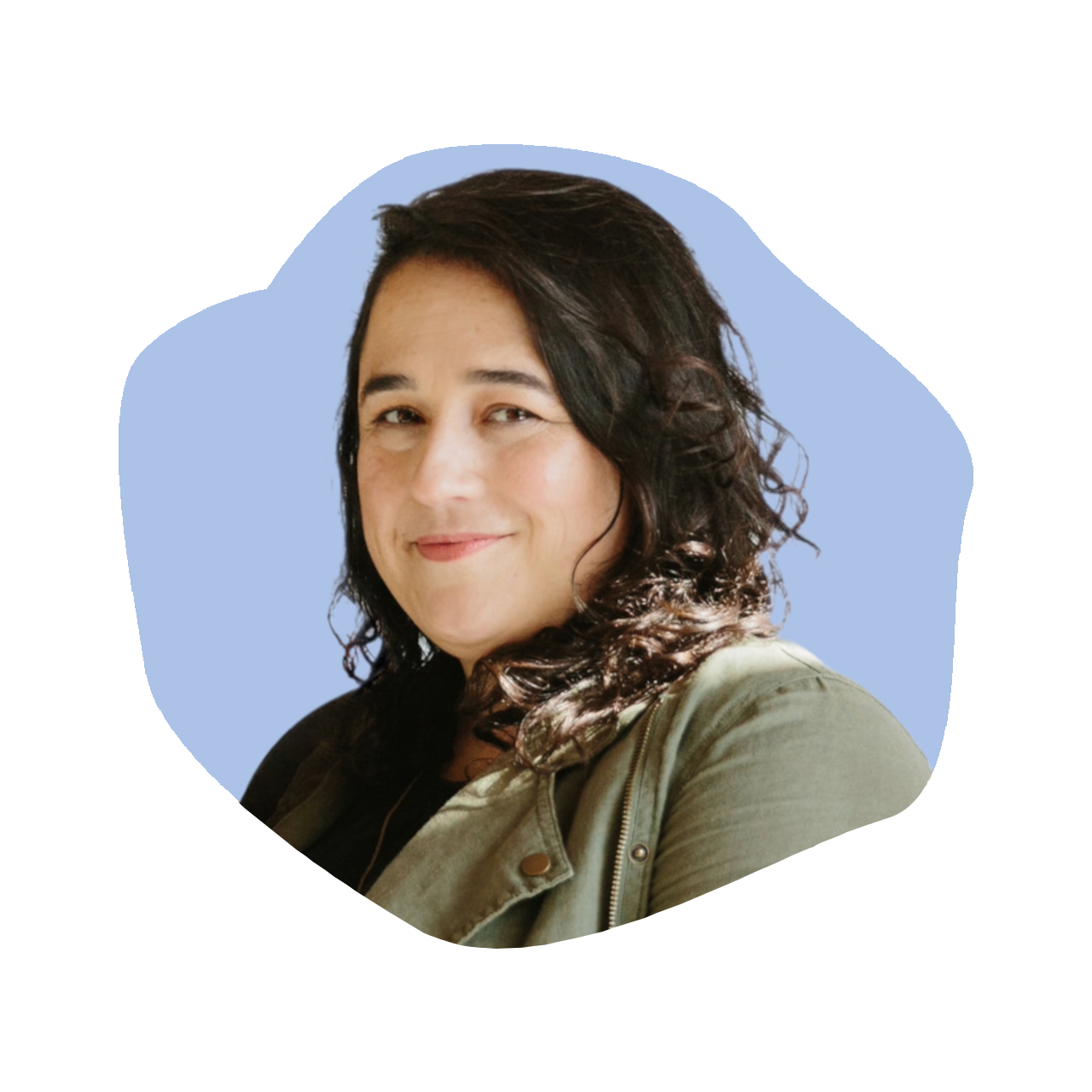
On this episode of The Kara Goldin Show, we're joined by Melissa Palmer, the Co-Founder and CEO of OSEA, a pioneering brand in the clean and sustainable skincare space. Melissa, along with her mother Jenefer Palmer, has transformed OSEA from a small family business into a global leader known for its luxurious, eco-friendly skincare products. With a foundation built on the belief that the ocean is the source of all life, OSEA’s products harness the power of seaweed and active botanicals to deliver clinically proven results.
During our conversation, Melissa shares her journey in growing OSEA, from its humble beginnings to becoming a recognized name in the beauty industry. We delve into how OSEA has maintained its commitment to sustainability while staying competitive, the significance of innovation within the brand, and the challenges and successes of building a family-run business. Melissa also offers insights into the future of the skincare industry and how OSEA plans to continue leading the way.
Whether you're passionate about clean beauty, interested in entrepreneurship, or simply curious about what it takes to build a successful brand, this episode is packed with valuable lessons and inspiration. Tune in to hear Melissa’s incredible story and learn more about the magic behind OSEA. Now on The Kara Goldin Show.
Resources from
this episode:
Enjoying this episode of #TheKaraGoldinShow? Let Kara know by clicking on the links below and sending her a quick shout-out on social!
Follow Kara on LinkedIn – Instagram – X – Facebook – TikTok – YouTube – Threads
Have a question for Kara about one of our episodes? Reach out to Kara directly at [email protected]
To learn more about Melissa Palmer and OSEA:
https://www.instagram.com/happypalmer
https://www.instagram.com/oseamalibu
https://twitter.com/oseamalibu
https://www.linkedin.com/in/melissa-clair-palmer/
https://www.facebook.com/oseamalibu
https://www.oseamalibu.com
Transcript
Kara Goldin 0:00
I am unwilling to give up that I will start over from scratch as many times as it takes to get where I want to be. I want to be you. Just want to make sure you will get knocked down. But just make sure you don’t get knocked out, knocked out. So your only choice should be go focus on what you can control. Control. Hi everyone, and welcome to the Kara Goldin show. Join me each week for inspiring conversations with some of the world’s greatest leaders. We’ll talk with founders, entrepreneurs, CEOs and really, some of the most interesting people of our time. Can’t wait to get started. Let’s go. Let’s go. Hi everyone, and welcome back to the Kara Goldin show. So excited to have my next guest. Here we are joined by Melissa Palmer, who is the co founder and CEO of OSEA. Melissa, along with her mom, her mother, Jennifer Palmer, has transformed OSEA into a leading name in a clean, luxurious and sustainable skincare company. And they are, if you have not seen this incredible product, I was or tried it. I was telling Melissa, I think I was at the Ojai spa and having a luxury girls weekend, and I tried it for the first time years ago, and I was like, Where has this product been? I mean, the cleanser is to die for, and so many other products that they have as well. But so, so great, proven products powered by seaweed and active botanicals. Again, if you haven’t tried it, you must so really great, and Melissa has played a pivotal role in expanding OSEA from a small family business into a globally recognized brand. I love the mother daughter kind of handoff that that occurred. So I cannot wait to hear more about this, and so excited to meet you, Melissa. So thanks for jumping in
Melissa Palmer 2:03
so great to be here. I’m so excited to connect with another founder that I admire so much. Oh,
Kara Goldin 2:10
thank you so nice. Well, very excited. So Okay, before we dive into OSEA, can you share the journey that led first of all to the founding, or the CO founding, I think your mom originally came up with this concept and but I’d love to hear a little bit more about the backstory. Yeah, so
Melissa Palmer 2:30
I’ve gotten to be around for every step of the journey, and lots of transitions through that. And we really are that story of growing up with we had bathtubs full of seaweed and essential oils whirling around the kitchen. The brand story, though, goes even further back. It was inspired by my great grandmother, Elsa, who was the first woman chiropractor in the US, and she had a massive impact on our family. However, in one really profound way, she was very experimental. She went to chiropractic school in 1925 so natural health and healing was a totally different world then. And midway through her career, she injured herself, and she had a dream that the ocean would cure her, and she lived in Long Island in Bayside New York, and it was December, and she still went down and started swimming. And within six weeks, she saw really massive improvements. She was healed, and she ended up going on to start what we think to be the first polar bear club in the US. And she swam in the ocean like 300 days a year. And she built this truth into our family, that the ocean is the source of life, is the source of healing, and that our own connection to nature is so tied to our own connect our own well being. My mom followed in her footsteps, became a natural healer and studied cranio, osteopathic work, shiatsu, and ended up running a Wellness Spa in the 80s. Totally coincidentally, was looking for products that she could use in the treatments. She just looked at the way she looked at food, read the back labels, and thought, I would never put this in my body, so I’m not putting it on my body. That was really the birth point. She started making her own formulas. Then fast forward to us growing up, and she just kept tinkering for close to 15 years. And in 1996 we ended up launching the company. We’d always been really entrepreneurial in our family. I was the oldest in high school at the time. Then now I’m realizing I’ve very much dated myself by saying that, and I was in our living room, so everyone helped, and I started working with her from the beginning. And that’s really the moment, but it really. Really everything stemmed from this idea of, you know, can we create a product that’s safe and effective for women, that delivers results using botanicals, natural ingredients that were clean and safe and clean wasn’t even a word, then we were definitely very fringe and different. And it’s a completely and radically different landscape market today, but this in the 80s and 90s was radical.
Kara Goldin 5:27
That’s awesome. So what year did you actually start? We launched in 1996
Melissa Palmer 5:32
so we’re officially 28 years old.
Kara Goldin 5:35
Amazing. That’s That’s wild. And how many SKUs Did you launch with when you first what was like the first
Melissa Palmer 5:43
so we launched originally with six SKUs, and that cleanser you referred to actually launched our ocean cleanser, launched in 1996 and is still in our top five SKUs. And I think something that’s so unique and we’re so proud of with OSEA is everything about the brand is the same as it was in 1996 we have the same logo, the same packaging, the same mission. We’ve evolved how the brand has been iterated in different channels, in ways that didn’t exist then, but the core of who we are has been totally unwavering since 96 which is wild, that’s
Kara Goldin 6:26
wild. So you launched with those six SKUs. What was your distribution like? I mean, because not a lot of people were doing direct to consumer. They didn’t have products on their websites. I mean, and obviously I found you in a spa. Was that kind of the initial push? Yeah, so you’re
Melissa Palmer 6:43
right on the pulse of what was available. Basically, in the 90s, there was no such thing as direct to consumer. Our paths were department stores, QVC or this little niche that we found of the spa industry. We knew we actually launched a Fred Siegel, so we launched at retail. We got really lucky. Walked in, got the products in the store, and then we realized it’s just the two of us. We can’t, we don’t know how to run a department store business. So we started selling it independent retailers and spas. And that was really it was a great, slow, growing business. Also the bonus was we had to go to all these spas and train them. So, like we’d have to fly to the Four Seasons and Bora, Bora, and they put us up, and we teach them how to do the treatments. So it was really fun, but it was really manageable business for the two of us. And in that first era of our growth, which was about 15 plus years, we just grew 10% a year from nothing. So you can imagine, it was a baby business, but it was great for we had other family members step in, in the garage. We did every job. We did everything.
Kara Goldin 7:55
So you left the business and went on to go outside of the family business. Can you talk a little bit about that experience?
Melissa Palmer 8:06
Yes, I hired one employee to work in the garage. Put up an ad on Craigslist for someone who think it was fun to sit in the garage with our family, and I had developed this total passion, obsession of hula hooping, and I coincidentally met someone who was building a hula hoop Dance and Fitness company, and ended up going and joining and helping grow that business and became the CEO and learned so much. It was a wild ride that included everything from like going on Good Morning America, and selling almost a million dollars of a handmade product that we didn’t have to every up and down. But the timing was so fortuitous, because it was at really the moment when DDC was starting, when social media was starting, and so I got this really fast track education in how to start to grow these channels of revenue. Meanwhile, OSEA was just like ticking along. This is only a couple years I left, and then I ended up leaving that business and thought, Okay, before I do something else, I’ll just build a website for OSEA and start a little social and that was about eight years ago, and the rest is history from there. So so much growth in between.
Kara Goldin 9:23
So you came back into the business. Your mom is still very much involved in the business as co founder. We
Melissa Palmer 9:31
called her the founder because, yeah, we like to say she founded me, yes, so I’m co founder. She’s founder.
Kara Goldin 9:39
I love it and and she’s still involved with product development. How many SKUs do you have now, without
Melissa Palmer 9:46
size variation? I would say about 45 at this point. Wow, yeah, and that’s with keeping it pretty concise. So we’ve definitely we also have a retail and professional. Line, because we’re still in spas and in treatment as well.
Kara Goldin 10:03
That’s That’s amazing. What what do you think has changed the most about your your company and your brand? I mean, the core is still from the original mission right around the sea and the seaweed and the botanicals, but has anything kind of changed? I mean about it, I mean the industry, obviously, as there’s, there’s a lot of noise around clean, and what is clean, and all of that. But I feel like, you know, you guys have really kind of stayed true to kind of what you were trying to do
Melissa Palmer 10:40
totally I think my answer would be both everything has changed and nothing has changed. So the nothing is really what I mentioned in the beginning, our mission, our brand creative, everything, or like our core brand philosophy is the same. The business is radically different. We have 70 employees. We are sold in 1000s of stores across the country. We are also still in spas. We’re a majority D to C brand. We are a leader in an industry that didn’t even exist, which is clean beauty. And you said it so perfectly in the beginning of like, clean, luxurious, efficacious, that was like, didn’t even register. There was nothing of that mindset at the time. I mean, we would get feedback like, why is the product in glass? And we were talking about they were vegan and sustainable, and things that just weren’t even part of the conversation, and now those things are the conversation. So I think what’s really different is just the way the business operates, and also all these like new channels and opportunities to grow that just never existed. You know, we don’t really look like an Instagram brand because we’ve been around 28 years, but the leverage that we got in the early days of Instagram influencer marketing before it was even called that, you know. And now we have Tiktok, which is a whole other channel where our brand lives. So there’s all these different ways where our same story is told in our same channel. And I think that’s the stuff that gets me really excited, like finding new pockets of growth, because I think we’re now shifting into another era, like it was this huge new field. Like, to me, it was so fun to start DTC marketing because it didn’t exist. Yeah,
Kara Goldin 12:52
no, it’s totally Yeah, you’re talking to somebody back when you first started was, you know, building e commerce, we called it, and it wasn’t even called DTC, and yeah, I mean, it’s, it’s, uh, we’d get excited when the fax machine rain. We were getting orders, right? We were like, yeah, and orders coming through. So, I mean, totally, totally different, different world, for sure. So, so when you think about these distribution channels to, I mean, what have you been surprised about? I guess you touched on a little bit of that. There’s the tiktoks and the Instagrams and, I mean, I really think that it’s hard being a marketer, because maybe you think about your brand as being whatever 25 to 45 or 35 to 50 whatever. But then I think that if you can actually package certain products into there’s no reason why your product can’t be Gen Z. I’m not speaking specifically to OSEA. I’m just saying in general, like I think it’s just it, just, if you can market and create something that really tells the story to this community that is involved in that channel, that I think anything is possible today for a brand, I
Melissa Palmer 14:15
completely agree, and our demo has radically changed in the past, yeah, five to 10 years. You know, in the early years we were selling exclusively at spas that cost, I can’t imagine what would be today’s prices, but like, $800 a night to go visit, $600 so that really limited who had access to the product. And not only were you staying at that hotel, but you were then going to the spa and so So Instagram really shifted, becoming D to C, being able to target different demos. And then Tiktok is continuing to bring our age group down. And I totally agree, you know, I’m less interested in marketing to tweens, which I know is. A real trend in beauty, but Gen Z and is like a perfect fit for our brand. And we get so many, you know, it’s anecdotal, but so many people who hear about it from their mom, and then or their mom, they tell their mom about it, and now our core consumer is actually 25 to 4025 to 34 but we have a pretty substantial like 50 plus consumer, and now they’re starting to get younger. So that’s what’s so exciting to me as a marketer, is that we have all these new ways to market. And the thing I love about Gen Z is like they’re gonna sniff out the authenticity. So we were going to pass that chat, but that vibe check on an authenticity, and it just challenges me more and our team more constantly, how to think about how we can stay true to our core and talk to a different audience. Yeah,
Kara Goldin 15:58
no, and I think it’s there’s so much possibility, because I do think that there’s especially when other people are talking about, for example, if somebody is on talking about seaweed and the benefits, they might not even be talking about your brand, but then they start to see that your brand is really like core to that. And I’ve interviewed a ton of dermatologists on here that actually have lines of products as well. But, you know, they go on and they talk about other people’s products too. And it’s amazing how many audiences like Gen Z are watching these dermatologists online, which are and plastic surgeons and, you know, and not necessarily going to, you know, get their face done or whatever. But, I mean, they really are interested in what they’re talking about, and I know that that’s like a huge opportunity for brands and beauty brands, not just their own. So, so, so interesting. So when you think about, well, first of all, the OSEA, the brand name. How did you guys come up with that name and what? Where did that come from?
Melissa Palmer 17:05
So it’s surprisingly often a little carrot that’s hidden. But OSEA means ocean, sun, earth and atmosphere, and that’s our interpretation of the wellness and the elements of life. So just really our connection to nature and the elements, we lead weed, but we’re really connected to the all the elements.
Kara Goldin 17:31
So when you are, when you think about the some of the products that you’ve developed over the years, is there one that just shocked you that ended up to be this, like runaway cell, that you just thought, come on, like that, no one is gonna I mean, maybe you didn’t think no one’s gonna buy it, because why would you launch it? Or why would your, you know, when you maybe it happened even when you weren’t inside of the company. But was there one that was has really ended up to be kind of a runaway success,
Melissa Palmer 18:04
yeah. And this was like, You gave me the perfect layup. And I, I think this is what the fun story that makes so many companies great, because it’s always a surprise. And though in hindsight, you look back and you’re like, Oh, I could have seen that one coming, but you never see it. So we launched originally as a skincare brand. So we were facial skincare, and I’ll fast forward to where we are today. We’re actually like 55% body care and then 45% skincare, facial skincare. So it’s all skincare, but we really break it into face and body. So we were 100% face and in 2010 my mom had this idea to come out with a body oil. And oil has been like this real uphill battle for us, because we launched a face oil in 1996 and it was like the time of like oil free everything. And it was we even have, and we still have. It’s like one of my favorite little niche products, oil for acne. And so oil was just always really hard. And my mom has always been so passionate about oils for the face, and she wanted to launch a body oil. So she came up with this super crazy body oil in terms of its manufacturing process, called ungaria Algae body oil, which was essentially barrel soaking. It’s a whole process of how we make it, but the nutshell is, for many months, we soak seaweed, break down the cell walls and infuse oil with seaweed. And we launched this product. And I was like, I used to joke around all the time. It was not a strong seller. And I was like, Well, good thing, because this is the least scalable product that we have, because it had the longest lead time. And I would just like, use it as a joke in my training to say, like, Oh, this is, like, what we’re interested in is really unique products, not like, really like, scalable products. Us. And then in 2018 so that product had been out for eight years. And to give you an idea, on like scale, I think we sold, like 100 units a month. Two things happened, which is one, this was our house burned down in the fires in Malibu, which was, like so stressful. And by like, such a miracle, we had moved the office out three months prior. But the other thing that happened is Victoria Beckham found the body oil at a spa, and she started posting about it at the same time as the fire and saw that our house burned down. Was like, I’m so sorry to see this, because we were like, Wow, thank you. This means so much for our family. And then she just started posting about the product because she loved it so much, and she posted maybe, like eight times for free on her Instagram stories. And we took it and we ran with that, and it was like just one of those moments of pure luck where body care was becoming such a thing, and it’s still growing rapidly, and turned that into our number one bestseller. Figured out how to scale manufacturing. It’s still a challenge, I mean, to as a point of reference on the scale. Now we sell to a minute at this point. So that was has been, like, it is, it has been just like, such a wild ride. We’ve built whole product families around it. And the other thing that was so crazy is, like, it’s a weird product name, and Daria is the name of the seaweed. And so we’re all so excited, because we’ve given Undaria a lot of press, and people are starting to use it everywhere. So Yes is the short answer. I could have never imagined that that would be our breakthrough product, especially because she sat there for eight years and then is, you know, leading everything
Kara Goldin 21:56
that’s That’s wild. What is your personal favorite product?
Melissa Palmer 22:02
I I mean the body oil, but that’s the obvious answer. I definitely it’s just my number one, but I have another favorite, which is called the day glow face oil. And that’s one of those products I think so many companies have it where I think it’s like, just one of our number ones in results, and is not a strong seller at all. And I keep trying to promote that product, but, you know, it just goes to show. I think if you have a great product, which the body oil always was, that’s a real sign of there is a time that the time often does come and sometimes it doesn’t, and we have to retire things, but I think oils are definitely my favorite. And I’m completely obsessed with our newest launch, which just came out this month, which is the Undaria algae body wash. So that has been most requested launch ever, and our biggest launch year, I mean, in the company history. So it’s been really exciting.
Kara Goldin 23:01
That’s awesome. What’s been the hardest part of growing the company? Would you say today? Like, I think at every point along the way, I always tell founders, they’re like, oh, hint has gotten so much bigger. Must be so easy. And, you know, at every point, and I don’t know if it’s like zero to 5 million, or I’ve heard people say 20 million, like, whatever it is, but there’s all these different things at different points and, you know, and I also talk to founders who are no longer running big companies anymore, and they’re like, I’m never going to raise money. I only want three people in my company. I, you know, all, all of, I mean, it’s been, it’s, it’s interesting, like, how so many people, like, have differing opinions about it, like, they don’t want small companies. I was fortunate to meet Richard Branson about a year ago. I didn’t realize this. Maybe you knew this, but he he’s only run one company as CEO, which I did not know that was virgin cola. So he, he just, he thinks up these companies, and then he takes his time to hire people in to run the company. And the only one was virgin cola. And he said, and it was a massive failure for, like, a lot of different reasons. But anyway, so that’s where we really connected on, sort of the beverage and, you know, he was just like, you could just see it in him talking about this. But it’s interesting because, you know, I think that there’s, there are a lot of people who end up launching a bunch of small companies because they just think, like, when it gets so big, I don’t, I don’t know, like there, there’s a lot of differing opinions about it, so, but I’m curious what you would say.
Melissa Palmer 24:49
So I think if you ask me today, and then you ask me next week, my answer will be different. You asked me two weeks ago, so funny. Yeah, you said on that list, it. Yes, I relate to I’ve agreed with at some point. I think just to agree with something is every inflection point that I’ve heard about, like, oh, this happens at 25 million or 50 million, or to get to 200 you know, all these different places. There’s so much truth in the rumors. And same thing with team like, you know, after 50 people, it’s a different vibe. It changes. At 25 I have found so much truth in my own version. I think, right now, what I’m struggling with is it’s, it’s the pressure of each decision is so great. I think about six years ago or seven years ago, we were in a subscription box that owed us, like $200,000 and they weren’t going to pay. And that was business ending, and that was so devastating. And now I’m looking at things that are million dollar impacts, 234, millions and millions, and I am just the pressure has increased, and the reward of each decision that’s made right is so much greater, and the impact is so much greater. And I think, you know, I also this is just a real, honest answer. I struggle sometimes to work within an organization this large, because I always like to joke like, this is the biggest company I’ve ever worked in today, because it’s bigger than yesterday. And I have never worked in a large company, and I’ve never had a job, actually, outside of like running stuff and growing so sometimes I forget, like process and procedure, and it’s I think that that’s the biggest challenge, and then the biggest like growth and opportunity has been like, this has just been like the it’s, it’s like, I’m growing every single day as the business scales. I have to scale myself, and so you want to get to a sticky point, which I feel like I’m at right now, because we’re, it’s, we’re in a whole new phase of growth. I just try and find whatever resource I can to help grow myself so I can catch up with what’s happening or be ahead of it ideally. Do
Kara Goldin 27:28
you? So I feel like, I mean, there’s the saying your network is your net worth. Like, I think that that’s such a powerful thing. Because I think it’s being able to we talked about our mutual friend Liz Heller, who’s amazing, like they’re having people that are have been through a journey. Maybe they haven’t been the CEO, maybe they have, but they or maybe they’ve been a founder. Maybe they haven’t, but, but they’ve seen it right? They’ve been in the pit, right and seeing this kind of stuff. And I think that that’s a powerful thing. I have that network as well, and I know when it gets hard, you know that I’ll rely on that. But is that kind of where you start to look that you phone a friend and start, you know, really not to bitch about it, but it, but really kind of to lay it out. And I think it’s an important aspect of it, and I frankly, I think it’s something that employees don’t really see too, because as CEO, you’re supposed to have all the answers, and sometimes you’re running into things that you’ve never done before, right? And that doesn’t mean that you’re a bad leader. You’re just actually like, trying to look around say, Okay, what should we do? Because these are big decisions. They
Melissa Palmer 28:47
are, and I think to some degree, some of them are decisions like, right now I’m probably disappointed, obsessed with Tiktok, live shopping. But who do I talk to about that? Well, actually, in that case, I have a friend who’s just going wild on there, and I could call him and see what was going on, but I totally agree on the network. And I think I’ve probably done this in two ways, through, like coaching and I’ve been in different groups. I did this group. I called it my men’s group because it was me and 15 guys called Vistage, and it was like a monthly thing, and they had totally different kinds of business, like huge cement companies or pharmaceutical manufacturing. And I learned so much from them. I’ve joined some other groups. So I have kind of, like more of a forum based mentality. But then also, I have this incredible group of female founders and that are similar sized, larger, a little smaller, and all different industries. If they’re in beauty, it’s non competitive, and we are so candid and open, like, I’ll put a text like, Hey, who’s sales? We’re down this week. Like, what are you guys seeing? And like, we’re supposed to have a zoom to go through our org charts, as we’re planning for 2025 I just got a text saying, like, hey, what’s the percentage of your marketing spend? Because Who else am I going to talk to about that so and what’s incredible, so cool to me is, like, I feel so grateful that these are all their women founders, that I get to have this incredible peer group.
Kara Goldin 30:24
Yeah, that’s super, super great. So last question, how do you see OSEA evolving in the next I don’t know, five you pick it five years, 10 years. I mean, where do you see it? I mean, it’s, I mean, this is so cool when you think back on the beginning of this, and your grandmother and then your mother, I mean, this is a powerful thing, that you’re caring right? And you’re doing it well. And it’s, it’s, you know, it’s, it’s awesome. So congratulations. It’s, it’s really, really, it’s great. And it’s a quality product that I’m sure you run into people who say, Oh my gosh, I’m obsessed with, you know, certain product, the oil, the whatever. But how do you see it evolving over the next five years? Well, I
Melissa Palmer 31:15
think the note of running into people, I’m still so shocked when I tell people, I’m like, Oh, my mom and I have a skincare company, and they’re like, what not OSEA? And it’s like, it’s kind of still this little brand in the garage, in my mind, because that’s, you know, it’s growing up with it. But I think my first answer is always, I don’t know, because it’s just growing and changing so quickly. What I think is, you know, we’re 99% in North America and in the US, and there’s a huge world we’re just launching right now, into Australia, New Zealand, and I think we have so much of a brand future. In Asia, we don’t have to sell anyone. There’s a real understanding on seaweed and the power of seaweed. That was a really big barrier to entry, of explaining to people results and benefits of the product. But Europe, there’s so much international expansion in front of us and in the US. To me, it’s really just continuing to deliver on our mission of providing great products, continuing to nurture relationships with our consumers, and continuing to grow where we are. I don’t see a lot of expansion. We have a great distribution channel right now. It’s really just growing now, and I think, you know, I’ve to some degree, I’m, I think the brand is like, really cool and hot right now, but that’s never what I’m trying to make go see a My goal is always for us to be like, really consistent and reliable and just continually deliver on our promise to consumers.
Kara Goldin 33:05
Yeah, which you’re definitely doing. So so, so cool. So Melissa Palmer, co founder and CEO of OSEA, thank you so much for coming on and sharing all of your wisdom and more about the brand and all. So thank you again.
Melissa Palmer 33:23
Thank you so much for having me, and I have to say, so exciting to hear someone remember the joy of getting that order on a fax machine.
Kara Goldin 33:32
I’m right there. I remember those days fondly. Thanks again for listening to the Kara Goldin show. If you would please give us a review and feel free to share this podcast with others who would benefit. And of course, feel free to subscribe so you don’t miss a single episode of our podcast, just a reminder that I can be found on all platforms. At Kara Goldin, I would love to hear from you too. So feel free to DM me, and if you want to hear more about my journey, I hope you will have a listen or pick up a copy of my Wall Street Journal, best selling book, undaunted, where I share more about my journey, including founding and building. Hint, we are here every Monday, Wednesday and Friday. Thanks for listening, and goodbye for now. Bye.





